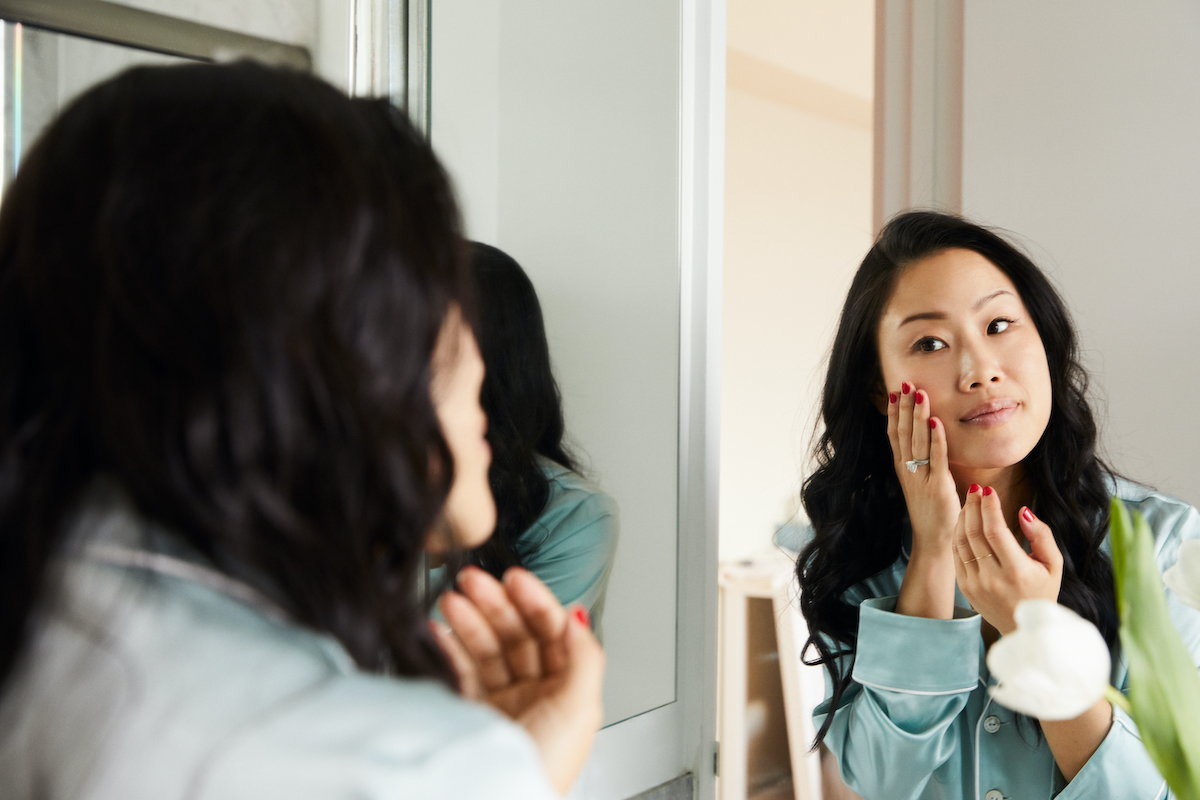Finally—Dermatologists Spill the 10 Best Anti-Aging Creams for Flawless Skin
Keep the glow going. The post Finally—Dermatologists Spill the 10 Best Anti-Aging Creams for Flawless Skin appeared first on Camille Styles.

At its best, skincare shouldn’t be reactive, it should be preventative. All the best clay masks can’t save you if you sleep with your makeup on, just like all the best vitamin C serums won’t help if you don’t wear sunscreen. The key is to do more now, so there’s less to do later. This is especially true when it comes to anti-aging skincare. For fading fine lines, hyperpigmentation, and other signs of aging, the best time to start was yesterday. The second best? Right now. Using the best natural anti-aging creams you can find is a good place to begin.
Growing up, I absorbed the habits of the women around me. I never questioned the routines that were passed down to me. Why would I when my mother is often mistaken for my sister? I’d slather my face in Vaseline, morning and night, unaware that what I was actually doing was loading up on moisture, early. Though this practice, now known as “slugging,” has made its rounds on TikTok, I’ve given it up. Turns out, I don’t need that extreme amount of hydration, given the combination of my oily skin and the LA heat.
Feature image by Winnie Au.
However, the importance of moisturization is a lesson that has stuck with me. These days, I slather my skin with hyaluronic acid and nourishing oils, all in an effort to keep my skin from losing more hydration than necessary. This is becoming more crucial as I approach the age where collagen production stops. When we hit 25, our bodies stop producing new collagen. That’s it. We’re done. And there’s no way to make any more. At that point, all we can do is preserve the amount we have. With this in mind, anti-aging is one of my top skincare concerns.
As a part of my effort to prepare my skin for this inevitability, I’ve already started adding anti-aging products to my routine. I’ve been on the hunt for the best creams to brighten pigmentation and smooth fine lines. As a rule, I like to stick to natural beauty products. I figure the best way to prevent premature aging is to load up on moisture and cut out any potentially harmful chemicals.
With so many products on the shelves, I spoke to cosmetic chemist Dr. Shuting Hu, founder of Acaderma, about what exactly counts as natural skincare and how to choose the best natural anti-aging creams. According to Dr. Hu, “Brands can label themselves as ‘natural’ since there isn’t any regulation to define what this really means.” To clear things up, she walked me through everything to know about anti-aging and natural skincare.
“Focus on the ingredients that are in your skincare products,” says Dr. Hu. “Many brands in the skincare space will call their products natural, but one look at the ingredients and you see that the product contains synthetic fragrances and dyes.” Read on to discover the best natural anti-aging creams, filled with ingredients that will help you pack your skin with all the good stuff.
What makes a product natural?
It feels like every product these days is labeled clean, organic, or natural. But is there a difference? Is one better than another? While all of these things sound good, figuring out what we should be shopping for can be intimidating. Dr. Hu demystified the labels for me, saying that “What makes something natural is if the product is free from synthetic chemicals, fragrances, dyes, parabens, sulfates, and phthalates. The ingredients in a natural skincare product are typically naturally sourced from plants and botanicals. It can be plant butter, oil, plant extracts, or a specific compound isolated from plant extracts.”
How can you tell if a product is natural?
Labels on a bottle can get misleading. Often, when a product stacks claims on its packaging, I get too overwhelmed to understand what I’m buying. Dr. Hu encourages us to simplify the process and just look at the ingredients. “Take some time to look into the brand and the ingredients they use to determine whether or not the product is really natural,” she says. If it contains synthetic chemicals, fragrances, dyes, parabens, sulfates, and phthalates, it’s a no-go.
What are some helpful ingredients in an anti-aging cream?
Visible signs of aging include fine lines, pigmentation, and decreased elasticity. They’re caused by collagen loss, UV exposure, and lack of moisture. Look for anti-aging creams which address these concerns. Dr. Hu recommends ingredients such as Bakuchiol, Vitamin C, green tea extract, and grape seed polyphenols.
Bakuchiol: “Bakuchiol is a plant-based alternative to the popular anti-aging ingredient, retinol,” she says, making it an effective natural solution, and a powerhouse in natural anti-aging creams. “It’s grown in popularity because it’s a natural ingredient that has the same anti-aging effects as retinol. Plus, it doesn’t cause irritation or dryness as retinol often does.”
Vitamin C: One of the favorite solutions for brightening pigmentation is vitamin C. “Vitamin C is a potent antioxidant which means that it will protect the skin from particles known as free radicals, unstable oxygen molecules that break down skin cells and cause wrinkles, while also helping protect against sun damage.”
Green Tea Extract and Grape Seed Polyphenols: These potent antioxidants are from natural sources. “They can also accelerate the repair of DNA damages induced by sunlight exposure to slow down the skin aging process,” says Dr. Hu.
What ingredients could have a negative impact?
In skincare, it matters as much what you don’t do, as what you do. Do: Wear sunscreen like it’s your job and invest in good products. Don’t: Use stripping ingredients. “Ingredients such as alcohol, ethanol, benzoyl alcohols, are all drying ingredients that break down the skin’s natural barrier and strip away the skin’s natural oils,” Dr. Hu told me. “Which in turn, leads to premature aging and irritation.”
Have you started your anti-aging skincare journey? Share the products you’re loving right now!

 BigThink
BigThink 






























.jpg&h=630&w=1200&q=100&v=f776164e2b&c=1)

